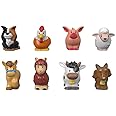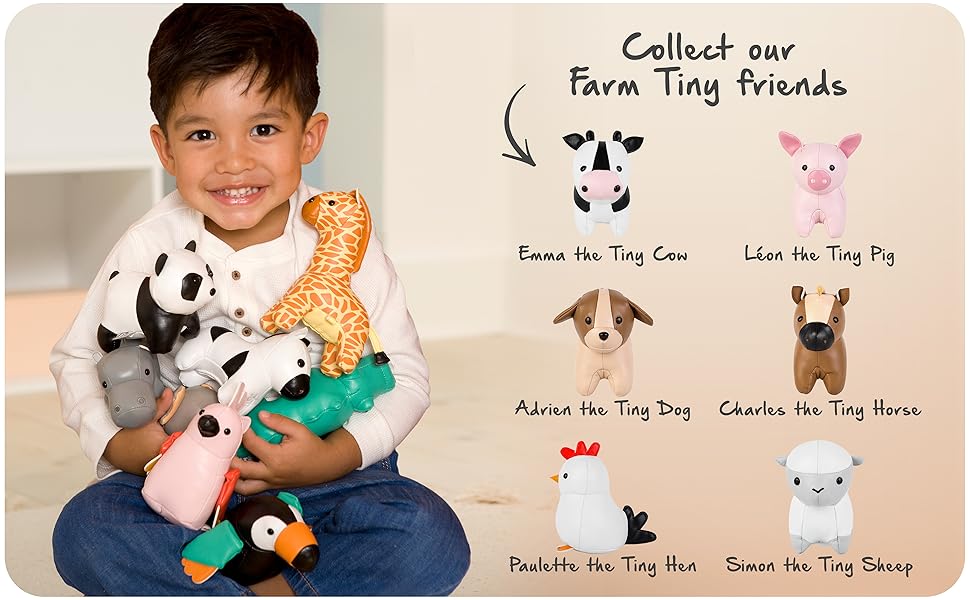Friendship is a universal theme that transcends age, culture, and even species. In the idyllic setting of a farm, this theme takes on a unique dimension, particularly when it comes to the bonds formed between children and their animal companions. Little people on farms often share extraordinary relationships with their animal buddies, enriching their lives and instilling valuable life lessons. This article explores the depth of these friendships, the benefits they bring, and the ways in which they shape character and community.
The Essence of Farm Life and Friendship
Farms are more than just places where crops are grown and animals are raised. They are vibrant ecosystems where friendships blossom. Children growing up on farms experience a lifestyle intertwined with nature, leading to profound connections with the animals they care for.
The Role of Animals in Childhood Development

Animals play a pivotal role in the lives of children on farms. From horses and cows to goats and chickens, these creatures provide companionship, teach responsibility, and offer emotional support.
- Companionship: Animals provide a sense of comfort and companionship, particularly for children who may feel isolated.
- Learning Responsibility: Caring for animals teaches children accountability, as they learn to feed, groom, and look after their well-being.
- Emotional Support: The unconditional love of an animal can help children navigate their emotions, offering a safe outlet for their feelings.
Building Bonds: Stories of Friendship
Numerous stories illustrate the deep bonds between children and their farm animals. These narratives highlight the transformative power of friendship in a rural setting.
Case Study: Lucy and Her Horse, Daisy
Lucy, a ten-year-old girl, shares an inseparable bond with her horse, Daisy. Since Lucy was five, Daisy has been her confidant and companion. Lucy often narrates how Daisy helped her overcome her fears and insecurities. During a local horse show, Lucy was nervous about competing for the first time. With Daisy by her side, she felt empowered and ultimately won a ribbon. This experience not only strengthened their bond but also taught Lucy the importance of trust and perseverance.
Case Study: Timmy and His Goat, Billy
Timmy, an eight-year-old boy, has developed a close friendship with Billy, a mischievous goat. Billy often follows Timmy around the farm, and their playful antics provide endless entertainment. Timmy’s parents note that caring for Billy has taught him empathy and the importance of kindness. One winter, when Billy fell ill, Timmy took it upon himself to nurse him back to health, showcasing a level of compassion often seen in adult caretakers.
The Benefits of Animal Companionship

The friendships that children form with animals on farms extend beyond mere companionship. Various studies have shown that these relationships have significant psychological and emotional benefits.
Emotional and Psychological Benefits

- Reduced Stress: Interacting with animals has been shown to lower cortisol levels, reducing stress and anxiety in children.
- Improved Social Skills: Caring for animals can enhance social skills, as children learn to communicate and work collaboratively.
- Boosted Self-Esteem: Accomplishing tasks related to animal care can significantly boost a child’s self-esteem and sense of achievement.
Educational Impact

Friendship with animals can also have educational benefits. Children learn important life lessons through their interactions, including:
- Biology and Ecology: Children gain firsthand knowledge of animal biology, behavior, and ecology, fostering a love for science.
- Life Skills: Managing chores related to animals—such as feeding, cleaning, and grooming—instills valuable life skills that extend beyond the farm.
The Community Aspect of Farm Friendships

The friendships formed on farms are not only significant for the individuals involved; they also contribute to the broader community. Farms often serve as gathering places where families and neighbors come together, reinforcing social bonds.
Creating a Sense of Belonging

Farm life often fosters a sense of community and belonging among families, as they share experiences and work together. Children learn the importance of collaboration and support, whether it’s through communal events like barn dances or seasonal harvest festivals.
Case Study: The Annual Farm Fair
In a small rural community, the annual farm fair is a highlight of the year. Children showcase their animals, participate in contests, and bond with friends and neighbors. This event emphasizes teamwork and camaraderie, as families work together to prepare their animals for the event, reinforcing the friendships formed on the farm.
Conservation and Animal Welfare
Friendships between children and animals can also instill a sense of responsibility toward animal welfare and conservation. Children who grow up with animals often develop a strong sense of empathy and advocacy for the environment.
Teaching Compassion and Responsibility
Farm life inherently teaches children the importance of caring for living beings. This sense of responsibility often translates into a lifelong commitment to animal welfare and environmental conservation.
- Advocating for Animal Rights: Children who form bonds with animals often become advocates for animal rights and welfare.
- Environmental Stewardship: Growing up on a farm teaches children the importance of sustainable practices, which they may carry into adulthood.
Challenges and Considerations
While friendships between children and animals on farms are generally positive, there are challenges that must be considered. Safety is paramount, and children must learn to interact with animals respectfully and responsibly.
Safety Precautions
Parents and guardians must educate children on how to safely interact with animals, including:
- Understanding animal behavior and body language.
- Using proper techniques for handling and caring for animals.
- Supervising interactions, especially with larger animals.
The friendships formed between little people and their animal buddies on farms are rich and multifaceted. These bonds not only provide companionship but also foster emotional growth, responsibility, and a sense of community. As children learn life skills and develop empathy through their interactions with animals, they grow into compassionate and responsible adults. The importance of these friendships extends beyond the individual, impacting families and communities as a whole.
In a rapidly changing world, the lessons learned on the farm through these unique relationships remain invaluable. The connections between children and their beloved animal buddies serve as reminders of the profound impact of friendship, responsibility, and love in shaping our lives and the world around us.




:max_bytes(150000):strip_icc()/Pink-Ladies-121422-968d2c88643846d6a7c9f095531da656.jpg)